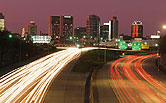- Could Artificial Sweeteners Be Aging the Brain Faster?
- Techniques for Soothing Your Nervous System
- Does the Water in Your House Smell Funny? Here’s Why
- Can a Daily Dose of Apple Cider Vinegar Actually Aid Weight Loss?
- 6 Health Beverages That Can Actually Spike Your Blood Sugar
- Treatment Options for Social Anxiety Disorder
- Understanding the Connection Between Anxiety and Depression
- How Daily Prunes Can Influence Cholesterol and Inflammation
- When to Take B12 for Better Absorption and Energy
- Epsom Salts: Health Benefits and Uses
Tougher Night Driving Rules for Teens May Lower Crash Rates


Tougher rules for night driving by teen drivers in Massachusetts reduced their risk for serious and fatal crashes, a new study shows.
In 2007, the state introduced a number of new regulations for young drivers, including more severe penalties for unsupervised nighttime driving by 16- and 17-year-old new drivers, and mandatory drowsy driving education.
Brigham and Women’s Hospital researchers analyzed data about police-reported crashes that occurred from March 31, 2006, to March 30, 2012, and found that rates of serious and fatal crashes among drivers aged 16 to 17 fell by 40 percent after the new rules were implemented.
“The 40 percent reduction in fatal and incapacitating injury crashes that we observed for teen drivers has been sustained for five years following passage of this law,” senior study author Dr. Charles Czeisler, chief of the division of sleep and circadian disorders at Brigham, said in a hospital news release.
There was a 19 percent overall decline in all crashes involving drivers aged 16 to 17, and they were involved in 29 percent fewer nighttime crashes after the new regulations took effect, according to the study in the June issue of the journal Health Affairs.
“We know that teenaged drivers are more vulnerable to performance impairment due to sleep deprivation than older people,” study author Shantha Rajaratnam, an associate neuroscientist in the division of sleep and circadian disorders at the Boston-based hospital, said in the news release.
“Our research shows that restricting unsupervised nighttime driving until age 18 years, with significant penalties for violating the law, contributed to a significant reduction in the crash rate in junior operators and, importantly, reduced crashes that occurred at night and those that caused serious injury,” Rajaratnam added.
More information
The U.S. Centers for Disease Control and Prevention has more about teen drivers.
Source: HealthDay
Copyright © 2026 HealthDay. All rights reserved.










